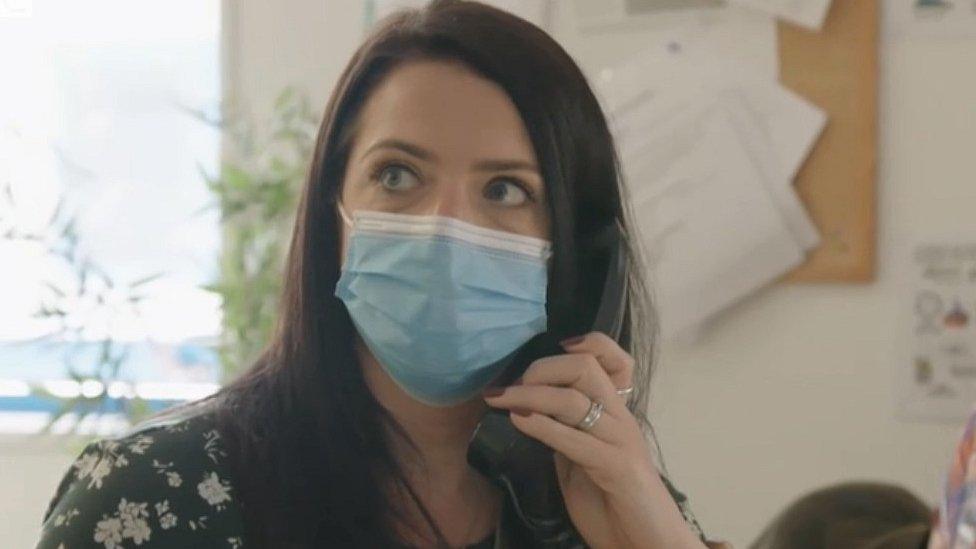'Overcoming my silence as a child led me into speech therapy'
- Published
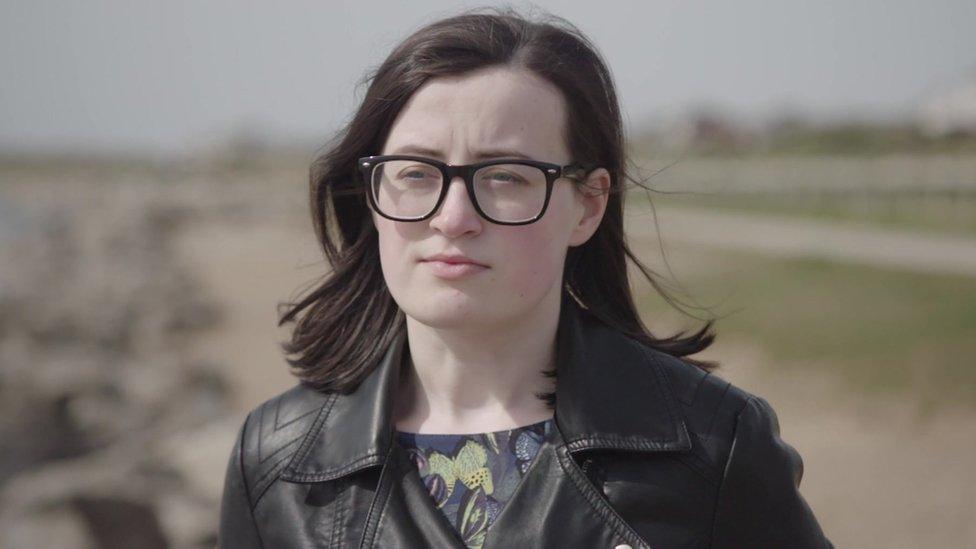
Niamh says selective mutism means "your voice, and your identity, is stolen from you"
Niamh Foy was just three years old when she was diagnosed with selective mutism, a severe anxiety disorder which affected her ability to speak.
Once at school, she was unable to talk to her classmates, was sometimes bullied for being silent and often played alone in the schoolyard, as she struggled with the debilitating condition which affects about one in 140 young children, external.
"I forgive them... because they didn't understand what was wrong with me, but I still felt sad watching the other children play without me," the 19-year-old, from Liverpool, says.
It was not just children who pressured her to speak.
As Niamh struggled to talk, adults would ask if she was being rude or put her silence down to bad behaviour or a lack of intelligence.
"I remember being asked 'are you stupid?' by a lot by people in shops or at the park, because I couldn't reply to them when they spoke to me," she says.
"That's the most upsetting thing about the condition.
"You can understand language perfectly, you just can't reply.
"Your voice, and your identity, is stolen from you."
The BBC has been given access to the CAMHS team at Alder Hey Children's Hospital
Most of the time, she feared she would never have a normal life or enjoy the things other children took for granted.
She said the condition means that under stress, "the speech output abilities are shut down and you are physically unable to speak".
"This means that you become effectively mute in environments such as school, going to the shops, or playing sports.
"As a result, I was a lonely child [and] I spent a lot of my youth in hospital and at specialist clinics."
However, with support from the Child and Adolescent Mental Health Services (CAMHS) at Alder Hey Children's Hospital in Liverpool, she found her voice through speech therapy and now reads her poetry at virtual open mic nights and hosts live streams to help people combat isolation during lockdown.
She is also in her second year of studying to be a speech and language therapist at university.
"I'll eternally be grateful to Alder Hey, because they gave me my voice," she says.
"Now I'm working to become a therapist and one day, when I'm qualified, I hope to be able to give other people their voice too."
To mark Mental Health Awareness Week, the BBC has been given access to the CAMHS team at the Merseyside Hospital.
Since the start of the pandemic, the unit's crisis team has seen a huge rise in the number of calls they are receiving and are now covering their helpline 24 hours a day, seven days a week.
Lydia Barker, from Liverpool, believes the impact of Covid has "opened people's eyes" to the seriousness of the mental health crisis among young people.
The 20-year-old was referred to Alder Hey's CAMHS four years ago.
"I'd been struggling for a while with different thoughts that I knew weren't quite right and they were taking over my day," she says.
"They were stopping me from being able to go out with my friends, socialising and... basically living a normal life."
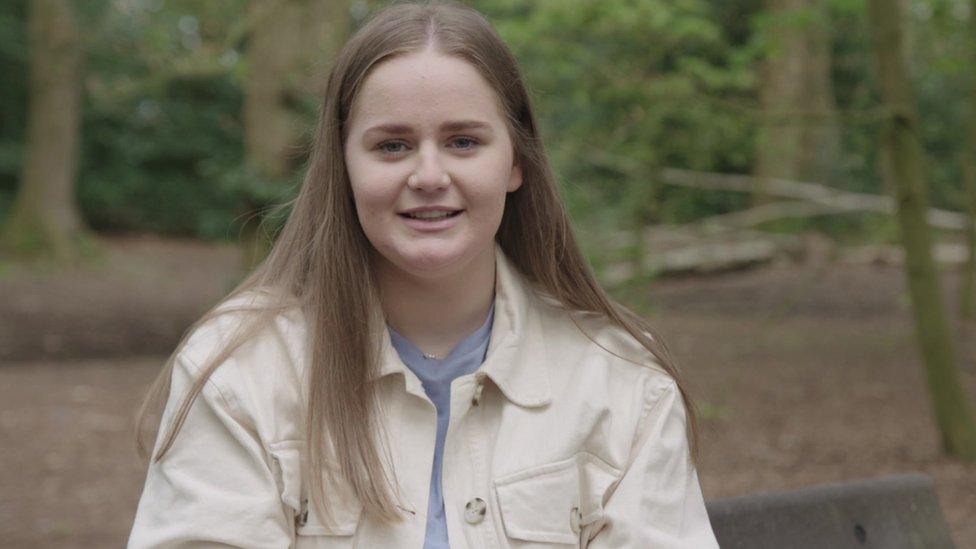
Lydia is training to become a paediatric nurse, inspired by her time with CAMHS
She says she was "terrified" when she was first referred to CAMHS but felt "reassured and safe" from her first appointment and her life has started to improve, thanks to a mix of therapy and medication.
However, she says it has not been easy.
"It involved a lot of hard work from me, but it was hard work that I was willing to put in to get the results that I really wanted to go on and be able to live my life," she says.
Inspired by the support she has received, Lydia is training to become a paediatric nurse and in placement at the hospital that helped her.
She says CAMHS made her realise she could use "how I'd felt at the time and all those scared and horrible feelings... to sympathise and also understand what other young people are going through".
"I'm really proud of myself that I've been able to... use it positively and not just allow it to consume me and takeover," she says.
"I hope I can go on to show the level of care that I received and be able to give that to lots of other young people."
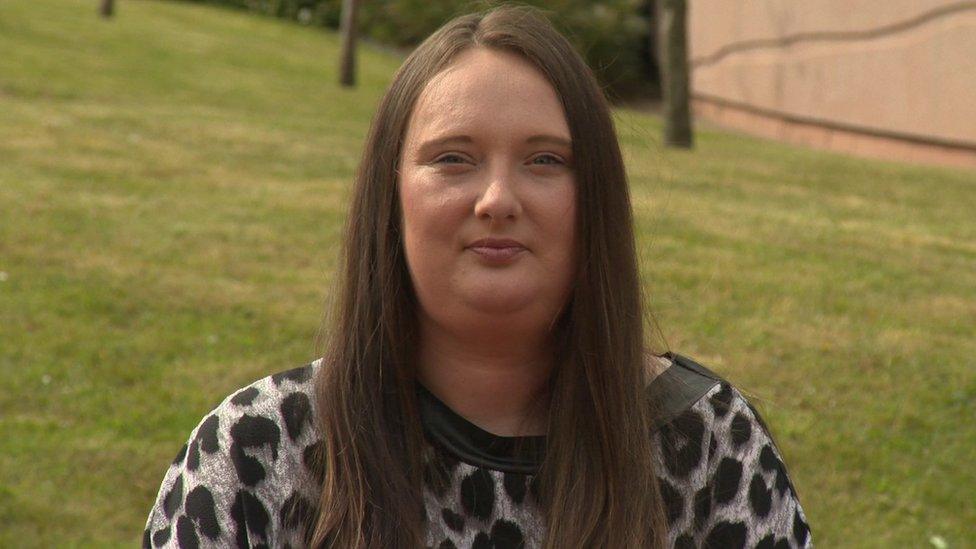
Shana is passionate about helping young people with their mental health
Shana Boyd, from Sefton, was also supported by CAMHS after she started to experience low mood at the age of 13 and went from being quiet in the classroom to disruptive.
She says it was her way of speaking out.
"At the time, I didn't tell anyone why my behaviour had changed and no-one had asked, so I went over a year with no support," the 29-year-old says, adding that she was referred to CAHMS after eventually confiding in a teacher.
Her treatment also inspired her career choice and she recently started a new job at Alder Hey, which is focused on early intervention work with children and young people with mild to moderate mental health and well-being issues.
She says she is "really passionate" about the work because it "is the type of support that I would have benefitted from, which may have resulted in me not needing to use CAMHS".
You can watch Niamh, Lydia and Shana's stories on BBC North West Tonight at 18:30 BST.
If you're affected by the issues in this piece, you can find support from BBC Action Line.

Why not follow BBC North West on Facebook, external, Twitter, external and Instagram, external? You can also send story ideas to northwest.newsonline@bbc.co.uk
Related topics
- Published11 May 2021
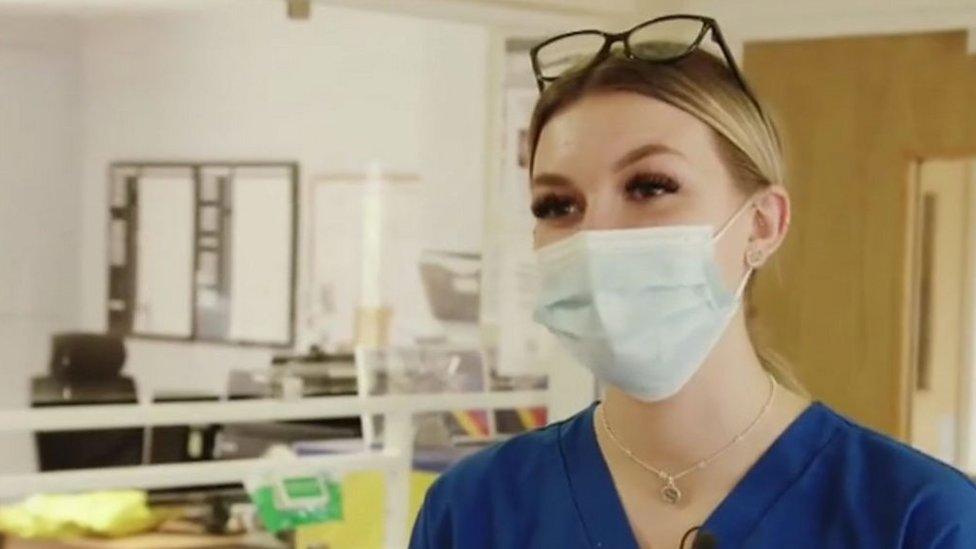
- Published10 May 2021
